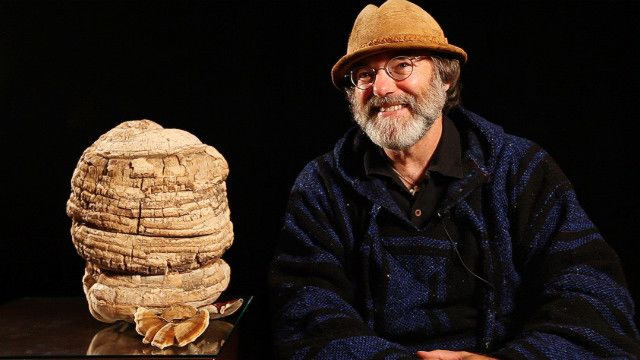
The world is far from perfect, and if we’re being honest, it’s unlikely that it ever will be. As idealistic as it may sound, the pursuit of perfection remains one of humanity's driving forces. Yet, perfection is a fleeting ideal, always out of reach, constantly shifting as our understanding of life, progress, and what’s possible evolves. Despite this, striving for perfection is still worth the effort—because in doing so, we create progress.
This is especially evident when we look back at the cultural revolutions sparked by the hippie movement. While many of the dreams of the '60s and '70s—like a utopian, fully-conscious world—remain unrealized, the movement’s impact continues to ripple through our society, influencing everything from sustainability to spirituality, health, and wellness. What the hippies set in motion was never about achieving perfection but rather about initiating a process that, over time, has tipped the scales toward something more conscious, compassionate, and connected.
The Hippie Generation: Dreamers and Doers
The hippie movement didn’t create a perfect world, and it’s easy to criticize that the goals of universal peace, love, and equality weren’t fully achieved. However, rather than focusing on what didn’t happen, it’s more useful to reflect on the progress that was made. These individuals, many of whom were deeply idealistic and driven by a vision of a better world, pushed forward ideas that now seem commonplace but were once radical.
Consider the growth of the health food industry. Organic and sustainable farming, once a fringe movement, has now become an integral part of our society. Whole Foods, which started as a small natural food store in Austin, Texas, is now a global brand, with its products reaching mainstream consumers around the world. What was once seen as “hippie food” has become a staple in grocery stores, reflecting a larger shift in society toward conscious eating and environmental responsibility.
This shift didn’t happen overnight, and it didn’t happen perfectly, but it happened. The seeds planted by the hippie movement in the 1960s and '70s have grown into something that influences even the most mainstream aspects of our lives. The presence of organic foods in major supermarket chains, the growth of farm-to-table restaurants, and the rising awareness of sustainable farming practices are all testaments to the enduring power of the hippie idealism that was once dismissed as naive.
Striving for Perfection: The Value of the Pursuit
It’s easy to be disheartened when we look at the imperfections of the world, especially when the goals seem so far out of reach. But the key to understanding progress vs. perfection is recognizing that the pursuit of perfection itself drives progress. Even when we fall short of the ideal, the effort leads to positive changes that ultimately create a better world.
The hippie movement’s vision of a peaceful, compassionate world might never have been fully realized, but that vision was never about perfection—it was about setting a new direction. It was about daring to challenge the status quo and imagine a world that was more connected, more conscious, and more compassionate. This spirit of pushing boundaries and striving for something better is a spirit we can all embrace.
Tip the Scales: How Your Efforts Make a Difference
The beauty of the hippie movement is that it shows us how individual efforts, even when they don’t lead to perfection, can make a lasting impact. By “tipping the scales,” we start a cascade of positive change that can transform society in ways we may never fully comprehend. Think about the global movement toward renewable energy, the awareness of mental health issues, the growth of mindfulness and meditation practices—these were once niche ideas, and now they are part of the collective consciousness. It’s not perfection that matters, but the momentum of progress.
How can we, today, continue to tip the scales? We can start by understanding that every action, no matter how small, has an effect. Whether it’s choosing to buy sustainable products, volunteering in our communities, or advocating for social change, each effort contributes to a greater collective movement. The world may never reach a state of perfect peace, but each step we take toward that goal creates progress—no matter how imperfect it may seem in the moment.
Progress Is Ongoing: The Role of the Next Generation
While the ideals of the hippie generation may have faced limitations, we are now living in a time where their work has laid the foundation for new movements. It’s up to the next generation—like yours and mine—to refine these ideals and keep pushing for progress. It’s a never-ending cycle of building, refining, and improving.
The technology and tools available to us today—social media, global communication, and greater awareness of environmental issues—are more powerful than ever. We have the opportunity to amplify the progress that was set in motion decades ago. We don’t have to settle for perfection; instead, we can build on what the past generation created, continuing to push the boundaries of what’s possible.
This idea of progress, not perfection, is central to how we move forward as a society. We can’t afford to sit back and wait for perfection to manifest, nor should we be disheartened by the inevitable imperfections of life. Instead, we must embrace the process of progress and recognize that each effort we make—whether big or small—has an impact.
Tipping the Scales in Real Life
Take a moment to think about the ways you can tip the scales in your own life. Do you strive to live consciously? Are you making efforts to reduce your environmental impact? Are you seeking out ways to help others in your community or on a global scale? Even if these efforts seem small or imperfect, they matter. They add up, and together, they create a wave of positive change.
Start with the basics: Reduce, reuse, and recycle. Support sustainable businesses. Volunteer your time or resources to causes that matter to you. If we all take small steps to improve the world around us, collectively, we create a powerful force for good.
Perfection Is a Moving Target
In the pursuit of progress, we may feel discouraged at times because perfection remains elusive. However, we should not allow this to undermine our efforts. Perfection may always be out of reach, but the pursuit itself is a noble and necessary endeavor. Every step toward that ideal brings us closer to a better world.
The hippie movement understood that the pursuit of perfection, while perhaps unattainable, is an important journey. The progress that we make along the way is what matters most. It’s not about creating a perfect world—it’s about making the world a little better, a little more connected, a little more conscious with each passing day.
Conclusion: Keep Pressing On
The world is imperfect, and it always will be. But that doesn’t mean our efforts to improve it are in vain. Every action, every step forward, is a contribution to a larger, ongoing process of change. The hippie generation helped set the wheels of change in motion, and it’s up to us to continue that work.
Strive for progress, not perfection. Tip the scales in favor of kindness, consciousness, and sustainability. The world might never be perfect, but by working together, we can make it a whole lot better. Keep pressing on—our collective efforts are making a difference.





























